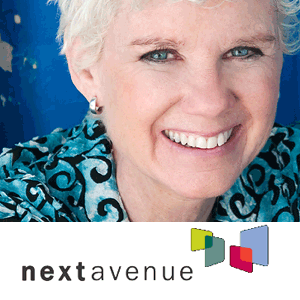 Carrie Schwab-Pomerantz dedicates her new soup-to-nuts personal finance book, The Charles Schwab Guide to Finances After Fifty, to “Chuck, who I am proud to call Dad.”
Carrie Schwab-Pomerantz dedicates her new soup-to-nuts personal finance book, The Charles Schwab Guide to Finances After Fifty, to “Chuck, who I am proud to call Dad.”
Chuck, of course, is the founder of the Charles Schwab brokerage firm. His author daughter is president of the Charles Schwab Foundation and senior vice president at Charles Schwab & Co. For the last 10 years, Schwab-Pomerantz, now 54, has been answering readers’ money questions in her syndicated column, Ask Carrie. The column is the genesis of her book.
Although her primer is a useful guide for both sexes — covering everything from retirement saving to long-term insurance — I recently spoke with Schwab-Pomerantz to get her advice specifically for 50+ women.
(MORE: Surprising News About Finances of People Over 50)
Before I share highlights of our conversation, I want to mention one of my favorite tips in her book, about estate planning.
She writes that if you want to hand over to your adult children part of their inheritance while you’re alive, consider giving them assets you think have the highest probability of appreciating in the future — for example, a growth stock or real estate — instead of cash. That way, you’ll reduce the size of your estate by the current value of the gift and lower future estate taxes on the asset’s appreciation.
(MORE: Why the Good News About Retirement Isn’t So Great)
Here’s a spoonful of Schwab-Pomerantz’s money advice for women in their 50s and 60s:
Next Avenue: What characteristics help women succeed at managing their finances after age 50?
Schwab-Pomerantz: I think that managing your money isn’t that different than managing any other part of your life. Doing it successfully —whether you’re a woman or a man — requires maturity, a clear sense of priorities, the confidence to make decisions and a willingness to follow through.
Many studies have shown that women have an advantage over men in the confidencedepartment; we are less likely to suffer from overconfidence. We have more of an appreciation of what we don’t know and are more likely to ask questions and dig for the correct answer before forging ahead.
What are the biggest money mistakes women this age make?
A common mistake is to not give our retirement savings a high enough priority. Often we care for our families before we take care of ourselves.
So as an example, we shouldn’t let saving for our child’s college derail our own retirement security. Otherwise, we may become a burden on them later on.
Another mistake is to defer to our spouse or significant other when it comes to financial decisions. I firmly believe that both members of a couple must have complete knowledge of their individual and shared finances, and participate fully in all significant decisions.
How do women do relate differently than men to financial advisers?
This is just a generalization, but some women, especially those who have a history of deferring to a parent or a spouse, may continue this behavior with their adviser. They may be reticent to ask questions and demand satisfactory answers.
On the positive side, many women are collaborators by nature, so they have an innate comfort level receiving advice and having an ongoing dialogue about their money. And many women are comfortable doing what I call ‘thinking with their heart.’ That’s a talent for understanding big picture, long-term goals. This is exactly the attitude we should bring to our relationship with a financial adviser.
Many women in their 50s and 60s have the ‘bag lady’ syndrome. They’re afraid of losing all their money and tend to go for ‘safe’ investments. How can they combat that?
You’re correct that many women are more conservative than men by nature, but often that works to their advantage. They’re less likely to swing for the stars.
When a woman is behaving too conservatively, however, it’s mostly a matter of education. Her adviser simply needs to explain the necessity of owning stocks as a buffer against inflation. It’s not rocket science.
I loved this question from your book: ‘My husband has no interest in our finances. How can I get him more involved?’ How common is this?
Anecdotally, I would say it’s far more common than we realize.
More and more, women are stepping up to the financial plate. Speaking personally, I’m far more involved than my husband [Gary Pomerantz, an author, journalist and visiting lecturer at Stanford University] with our finances. And many of my friends and colleagues report the same.
Your book features two questions about women feeling at sea about money: ‘My husband of 50 years has just died. How can I manage?’ and ‘I’m 50 and contemplating divorce. My husband has always been in control of our money. How can I cope?’ What’s your advice for women like this?
I go back to my ‘everyone needs to learn how to swim’ analogy. We all need to be on top of our finances. It’s a basic survival skill.



You must be logged in to post a comment.